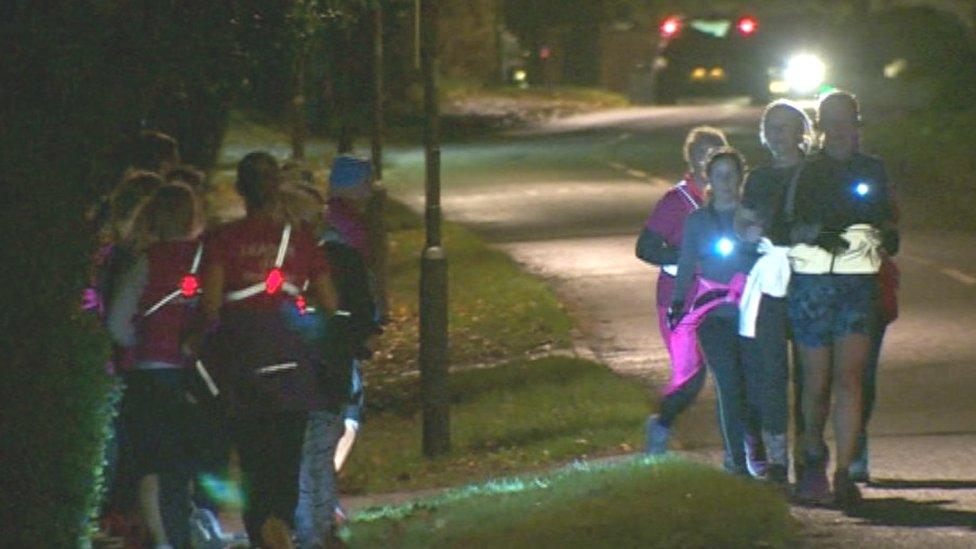'Dark winter nights an unspoken curfew for women'
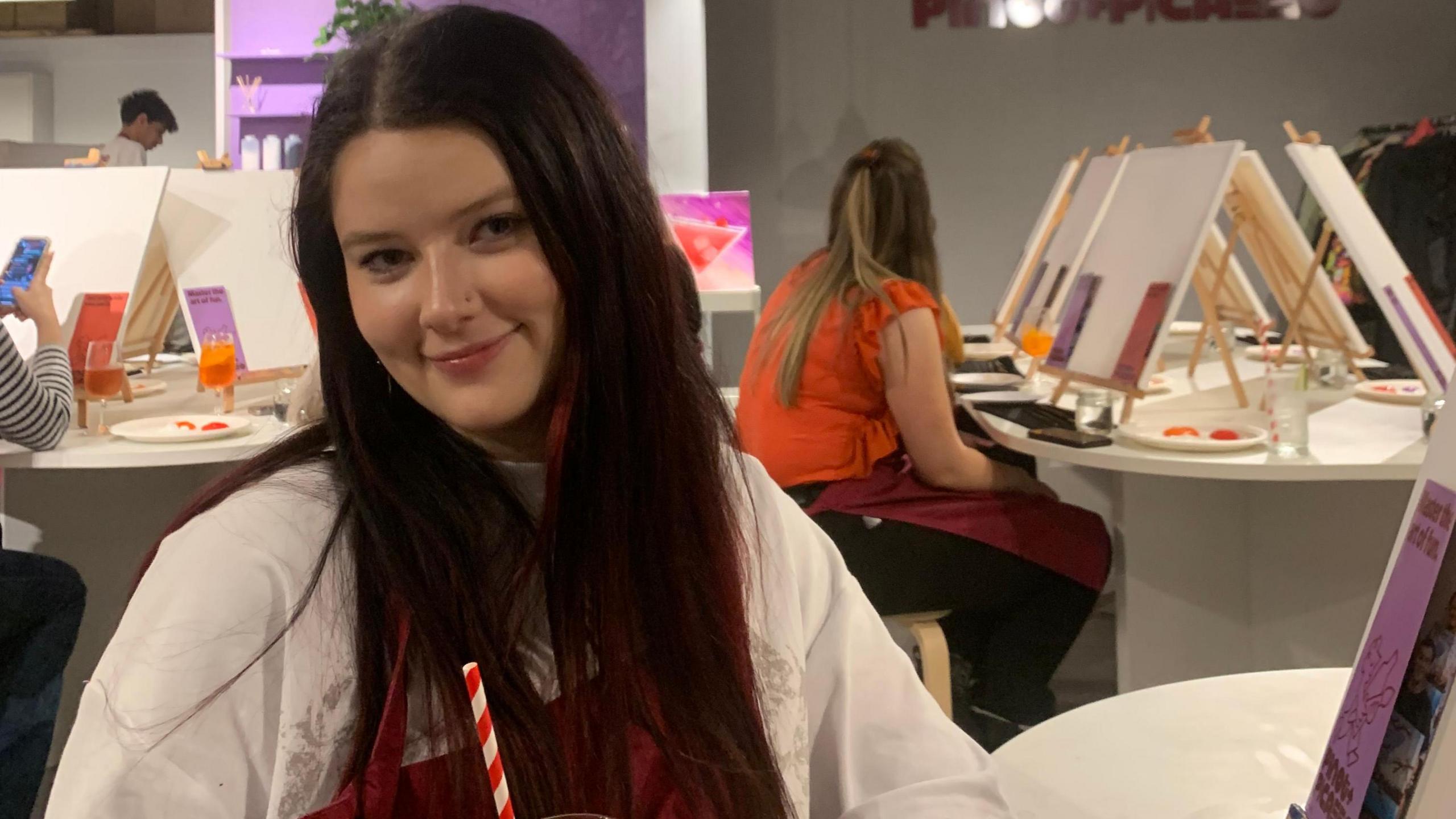
Steph Barney is co-founder of Girls on the Go, which organises events for women who struggle with loneliness
- Published
Dark winter nights can feel like an unofficial curfew for women because of fears about safety, the co-founder of a women's wellness club has said.
Steph Barney runs Girls on the Go, a community that organises events and activities for women in Manchester and Liverpool to combat loneliness.
She said there was a "marked drop-off" in attendance over winter due to members' concerns about travelling in the dark.
"It's an unspoken curfew. For me and the other women in the community, it feels like after 4pm you're stuck inside," the 24-year-old said.
"From November onwards we see a big drop-off, and I understand why. It's because it gets to 5pm and people don't feel safe."
Ms Barney said the group tried to arrange for events to start as "early as possible" because many women did not feel safe staying out after 20:00, even in summer.
"We try to find locations that are really close to bus stops," she said. "I wouldn't want to go to an event where I have to walk in the dark for 20 minutes in the city, that would terrify me."
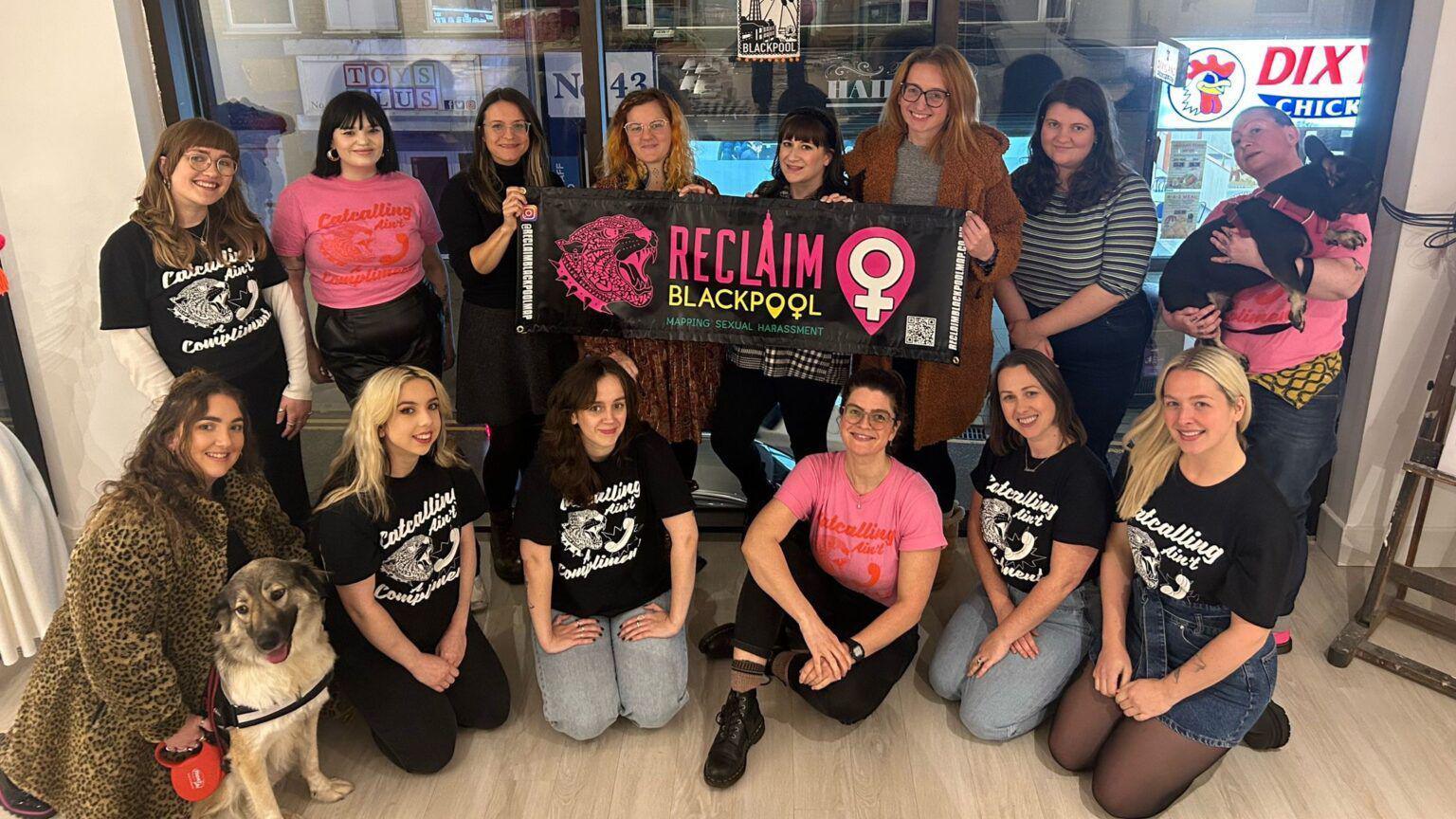
Reclaim has been mapping incidents in Blackpool since 2021 but now includes incidents across the country
Her feelings are echoed by the founder of Reclaim Blackpool, a project that physically maps instances of sexual harassment.
Antonia Stack said although women carried out an "exhausting" amount of safety work, the map showed "harassment doesn't wait for darkness".
"When the nights draw in early, many women instinctively become more cautious," the 38-year-old said.
"Not because we want to, but because we've been conditioned to carry out an exhausting amount of emotional and practical safety work that men rarely have to think about."
Ms Stack said many of the reports the group received had happened in broad daylight and in busy public spaces, which "demonstrates how normalised this behaviour is".
"It should never be up to women to constantly modify our routes, our clothing, what we carry, or our confidence just to feel safe," Antonia said.
"We should be able to move freely, at any time of day and in any season. The responsibility lies with men to change their behaviour, not with women to shrink our lives.
"Sadly, while harassment and abuse exist, women will continue to be cautious, especially in the dark winter months."
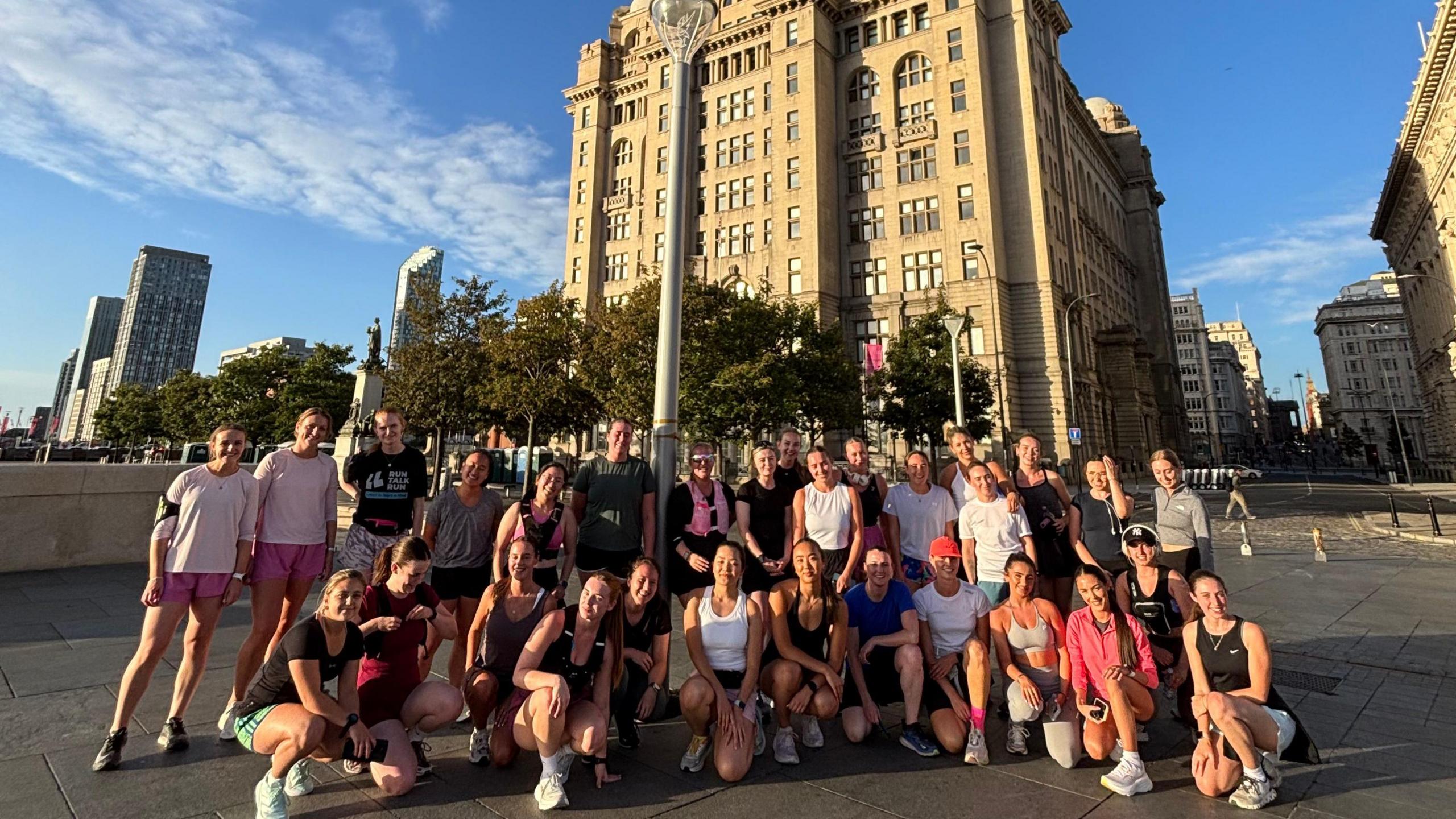
Members of Girls on the Go said they were regularly harassed while running
Girls on the Go hosts a running club, which Ms Barney said was mainly attended by women worried about exercising on their own.
She said even though they ran in a large group, they were still regularly harassed.
"We have members who've told us one of the reasons they come to women-only events is because they've been raped or sexually assaulted by men," she said.
"We try our best to protect each other by running in a group, but it still doesn't stop men from harassing.
"It's usually 18-year-old boys. They start following, catcalling, name calling or they stand in the way and won't let the group pass."
Ms Barney said many women in the group felt they had to take certain steps before leaving the house so they would not be "blamed" if something happened to them.
She said: "I think it's the same with most safety aspects of being a woman. It's always 'don't drink too much, don't wear this, don't wear headphones, don't walk in the dark'. There's never a time the blame isn't on us.
"I agree that we all should take personal responsibility for our safety, but also why can't I go for a walk at 7pm by myself?"
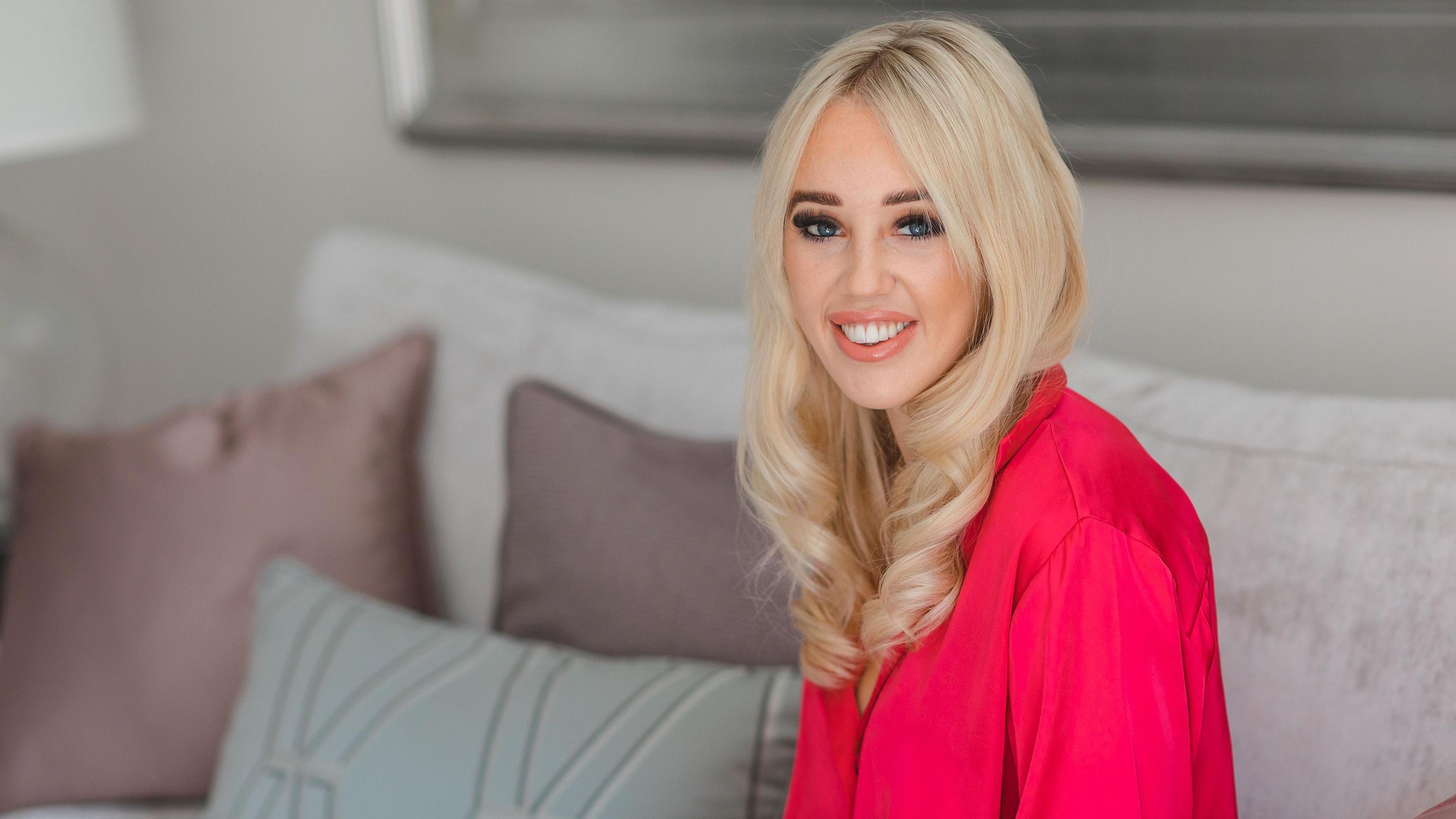
Emma Kay said the WalkSafe app had been downloaded 500,000 times after the murder of Sarah Everard in March 2021
The founder of personal safety app WalkSafe said she believed businesses could be doing more to help make their employees feel safer on their journeys home.
"I talk to businesses that are not interested in spending the money, then they do it out of a reaction when something happens to a staff member," Emma Kay said.
Her free-to-use app enables users to pick routes home while sharing them with family and friends so they can monitor their safe arrival, sending automatic alerts if they fail to reach their destination.
She said research the app conducted with security provider Mitie found 44% of women and 21% of men felt unsafe when making everyday journeys, including commuting to work.
It showed people spend an extra £100 a month on average in the winter, while twice as many women were prepared to miss social events to avoid walking in the dark compared to men.
Meanwhile, research the app undertook with pet supplement brand YuMove found 62% of women in the UK walked their dogs less due to concerns around personal safety.
"Seasonally, there is a financial cost. Emotionally and socially, it bares a huge impact," the 37-year-old said.
"It is exhausting and I feel like every year these issues don't change for us."
Get in touch
Tell us which stories we should cover in the North West
Read more stories from Cheshire, Lancashire, Greater Manchester and Merseyside on the BBC, watch BBC North West Tonight on BBC iPlayer and follow BBC North West on X, external.
Related topics
More like this story
- Published16 November 2024
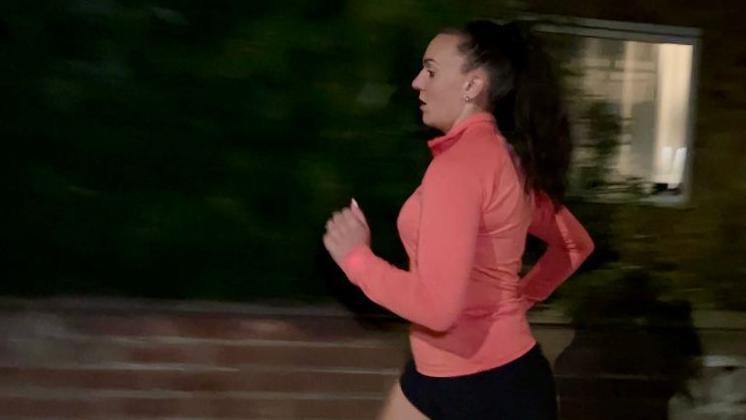
- Published29 October 2024
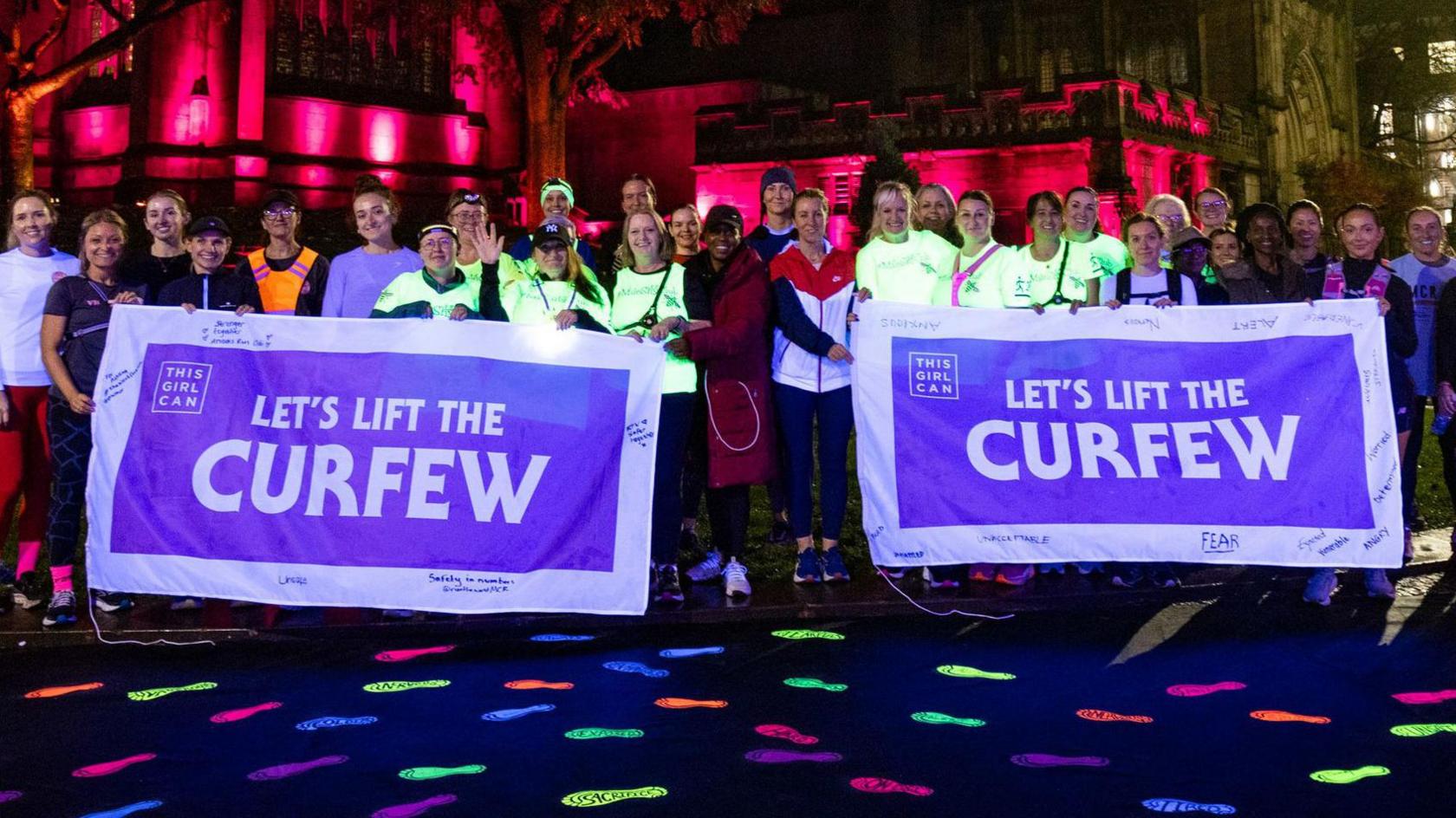
- Published15 November 2023
